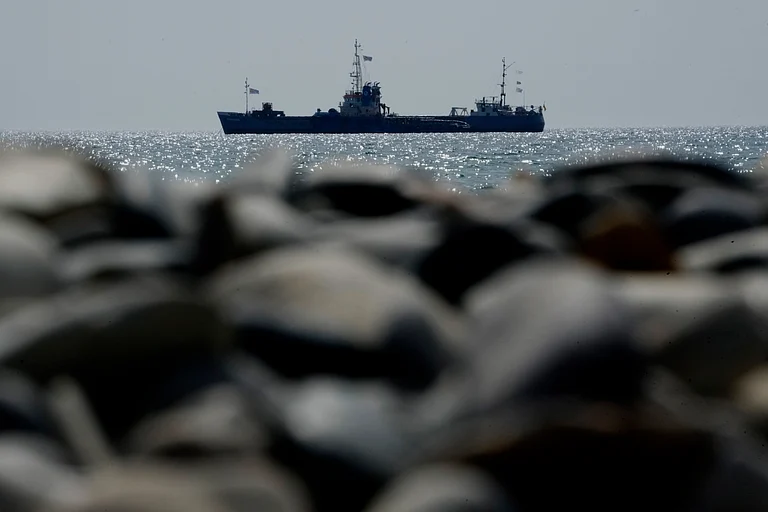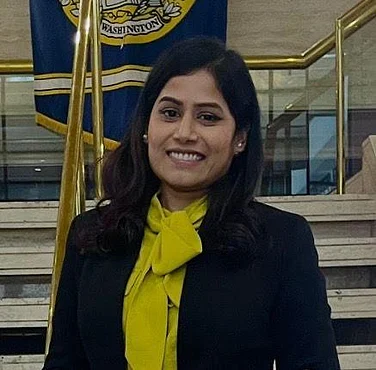In a world where corporate social responsibility often treads the thin line between duty and display, Ramesh Ramakrishnan, Chairman of the Transworld, offers a strikingly different perspective, one that is grounded in responsiveness, humility, and the quiet conviction that business must serve beyond balance sheets.
For more than two decades, Ramesh has led by example during some of the gravest crises of the sub-continent. Whether in the aftermath of earthquakes, tsunamis, floods, or a global pandemic, his instinct has always been to act first and ask questions later. In doing so, he has shaped a new definition of corporate leadership, one where logistics becomes a lifeline and the language of commerce transforms into a vocabulary of care.
The Corporate First Responder
During the COVID-19 pandemic, when hospitals across India were overwhelmed and oxygen supplies had all but vanished, Transworld stepped in not as a contractor, but as a contributor. Its logistics network, typically used for commercial shipping, was repurposed to transport oxygen cylinders, concentrators, and PPE kits from the UAE to India. Containers that usually moved trade goods now carried life-saving cargo, much of it at the company’s own cost.
This was not a one-off gesture, but the continuation of a long-standing practice. In every major humanitarian disaster in recent Indian history, Transworld has played a behind-the-scenes role, mobilising relief, rerouting ships, and moving essential supplies to those in need. Under Ramesh’s leadership, the company has become an unofficial emergency responder, with logistics tailored to human need instead of market demand.
“During a crisis, logistics is not about profit margins. It’s about timing, urgency, and delivering hope,” Ramesh said during an internal address in the early days of the pandemic. That principle has guided his response in situations that demanded more than corporate statements.
Long Before COVID: A Consistent Legacy
The company's humanitarian involvement dates back to the Gujarat earthquake in 2001. In the immediate aftermath, Transworld worked with relief agencies to transport supplies and shelter materials to the worst-hit regions. This experience laid the groundwork for a nimble, scalable model of corporate disaster response that has since been replicated multiple times.
In 2004, after the Indian Ocean tsunami devastated coastal areas across South and Southeast Asia, Transworld once again responded swiftly. Vessels were diverted, containers converted into storage and shelter units, and vital aid delivered to remote coastal villages that were otherwise cut off from land access.
The 2018 Kerala floods marked another milestone. Over a period of nine months, the company implemented a three-phase response: relief, rehabilitation, and reconstruction across four of the worst-affected districts. With road and rail systems largely non-functional, Transworld vessels transported supplies directly through water routes. On-ground partnerships ensured that goods reached where they were needed most.
Then, in 2019, when Chennai faced a severe water crisis, Ramesh led a different kind of emergency response, one that addressed an urban crisis of scarcity. Transworld supplied over 330,000 litres of clean water through tankers and containers to vulnerable fishing communities, old-age homes, hospitals, and schools. Water was shipped in from Kandla to Chennai, and over 46,000 people received some measure of relief in the process.
A Business Rooted in Empathy
What distinguishes Ramesh’s approach is not just the scale of response but the consistency and intent behind it. He does not see humanitarian work as a side project or an obligation. It is embedded in the very fabric of how Transworld operates.
For him, the corporate purpose goes beyond shareholder returns. It includes a deep commitment to the invisible workforce especially the blue-collar Indian workers in the Gulf who form the backbone of regional infrastructure and development. Many of them are migrants, away from their families, and without access to adequate social support. Ramesh has made their wellbeing a personal priority.
In partnership with NGOs and the Indian Consulate, he has championed initiatives ranging from skill development and legal aid to healthcare and housing. One of his long-standing collaborations is with SmartLife Foundation in the UAE, an NGO working to empower warehouse and construction workers through education and life skills. More than 20 workers from Transworld’s own operations have gone through these programs in recent years, gaining not just promotions but a sense of dignity.
Beyond Disaster Relief
The humanitarian vision under Ramesh’s leadership also extends to inclusion and cultural stewardship. Transworld runs internship programs for youth with special needs, supports NGOs working with the differently-abled in India, and contributes to institutions that promote classical Indian arts such as the Chembur Fine Arts Society, which houses the Sivaswamy Auditorium, named after Ramesh’s father and Transworld’s founder.
Yet it is in moments of crisis that his values shine most clearly. He has proven that a shipping company, often perceived as operating on the margins of society, can become central to its wellbeing. That vessels and containers can do more than transport goods they can transport relief, shelter, and survival itself.
A Blueprint for the Future
As the frequency and severity of climate-related and humanitarian disasters increase, Ramesh’s approach offers a compelling model. It shows that businesses with robust infrastructure and international reach are uniquely positioned to support relief efforts if they have the will to do so.
He has never sought visibility for his efforts, preferring to let actions speak. But the cumulative impact of these actions over decades paints a clear picture of a leader who sees service not as sacrifice, but as responsibility.
Transworld’s legacy under his leadership is not just one of commercial success. It is a testament to what becomes possible when business becomes a force for good.
When asked what motivates him to respond so swiftly in times of disaster, Ramesh once said, “It’s very simple. If we are in a position to help, we must. That is not a choice. That is the purpose.”


























